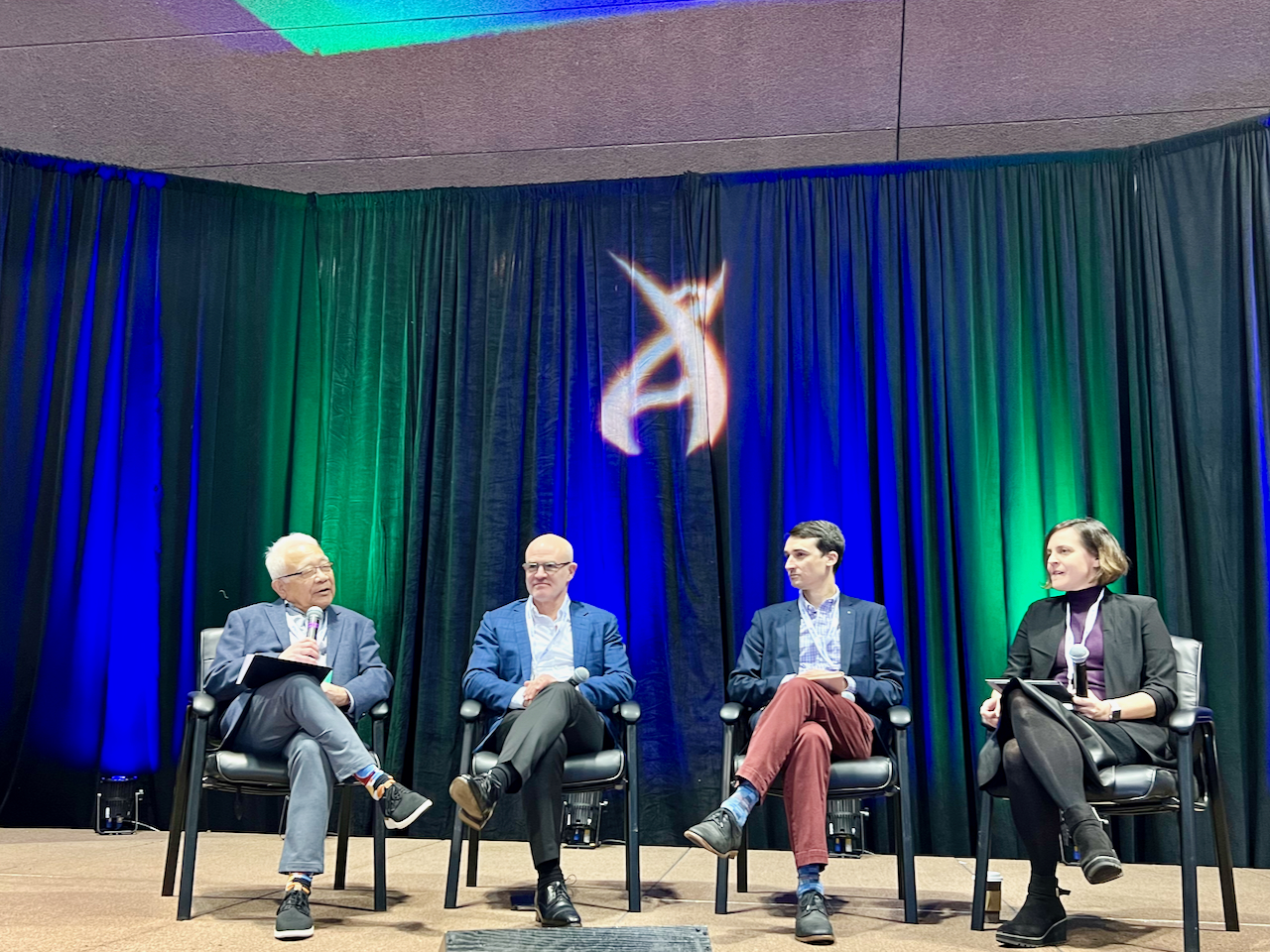
UC San Francisco scientists, experts and thought leaders participated in 32 presentations and panels over the 3-day Precision Medicine World Conference (PMWC) held January 25-27, 2023. The forum drew more than 2,000 people from around the world from various sectors to foster collaboration, expand the practice and realize the promise of precision medicine.
Advancing precision medicine continues to be a priority at UCSF and is central to its overarching advancing health worldwide mission. In service of improving personal health, population health, and health equity, UCSF faculty lead numerous local, state, and national efforts to use data-driven tools and analyses to develop new insights, diagnostics, therapeutics, and prevention measures.
Conference highlights
The opening day kicked off with a first-time panel on “How New Public-Private Collaboratives Can Catalyze Transformative Health Breakthroughs” chaired by Keith R. Yamamoto, PhD, vice chancellor of Science Policy and Strategy and director of Precision Medicine at UCSF. Yamamoto has been involved in planning the conference since UCSF started co-sponsoring the event eight years ago. Panelists included Douglas Friedman, CEO of BioMADE, an agency in the United States Department of Defense that seeks to develop bioindustrial technologies; Jay Keasling, CEO of Joint BioEnergy Institute (JBEI), a U.S. Department of Energy Bioenergy Research Center; and Renee Wegrzyn, Director of Advanced Research Projects Agency for Health (ARPA-H), a new agency in the U.S. Department of Health and Human Services agency that seeks to develop capabilities to prevent, detect, and treat some of the most intractable diseases. Wegrzyn is the first director of ARPA-H, which is tasked with supporting innovative and bold research projects to transform important areas of medicine and health, with focus areas of health sciences futures, scalable solutions, proactive health, and resilient systems.
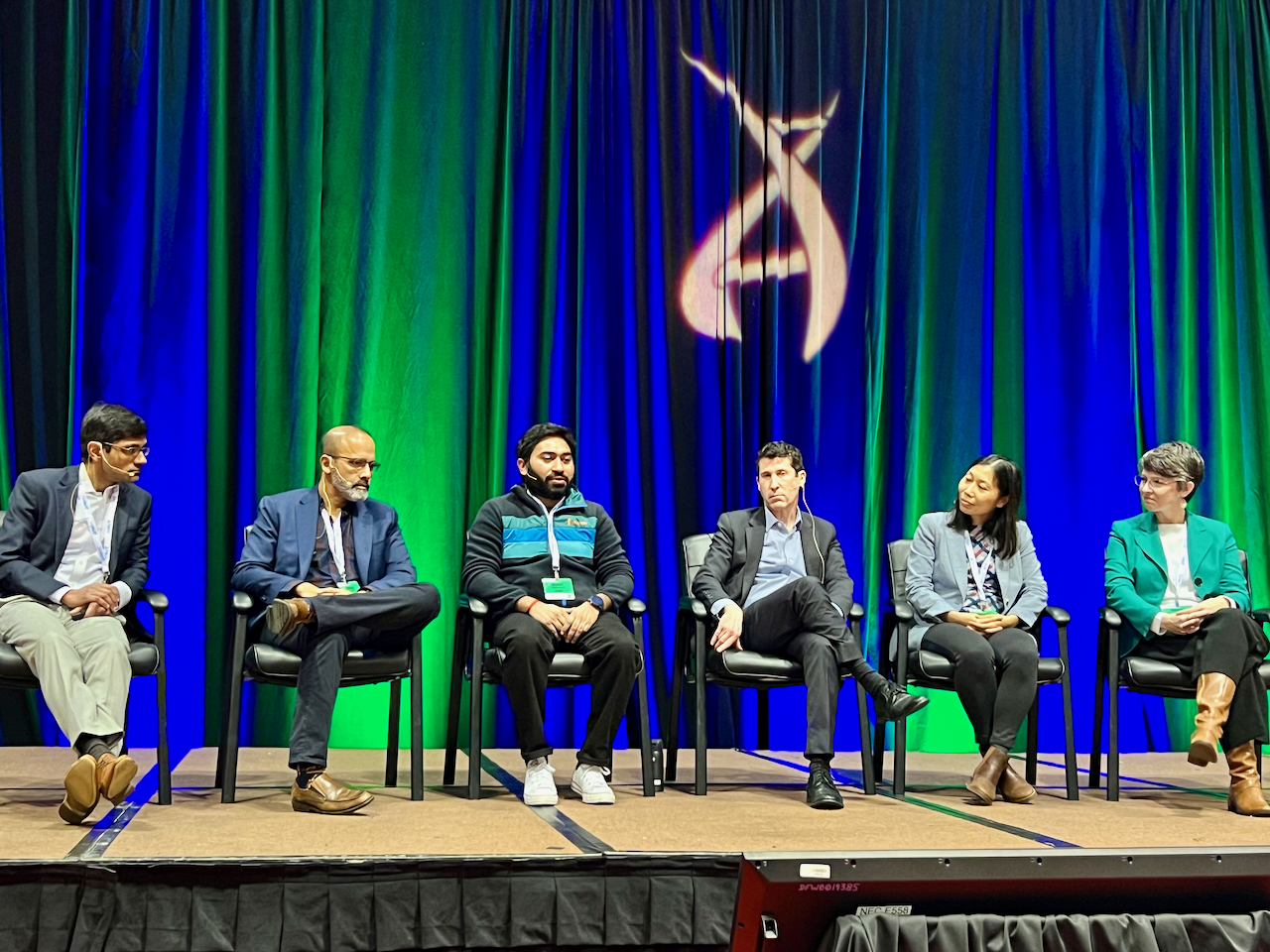
The second day at PMWC included several UCSF speakers that participated in the expanded data track on Real-World Evidence (RWE), co-chaired by Ben Rubin, PhD, associate director of UCSF Precision Medicine, and Courtney McFall, scientific project manager of UCSF Precision Medicine and 3D Health.
Approaches that rely on RWE increasingly influence clinical and regulatory decision-making as real-world data (RWD) collection and analysis methods advance. Given the potential of RWE to enhance the development of new therapies and improve drug discovery, healthcare delivery, and disease prevention and management across clinical domains and populations, PMWC dedicated a one-day track to this subject.
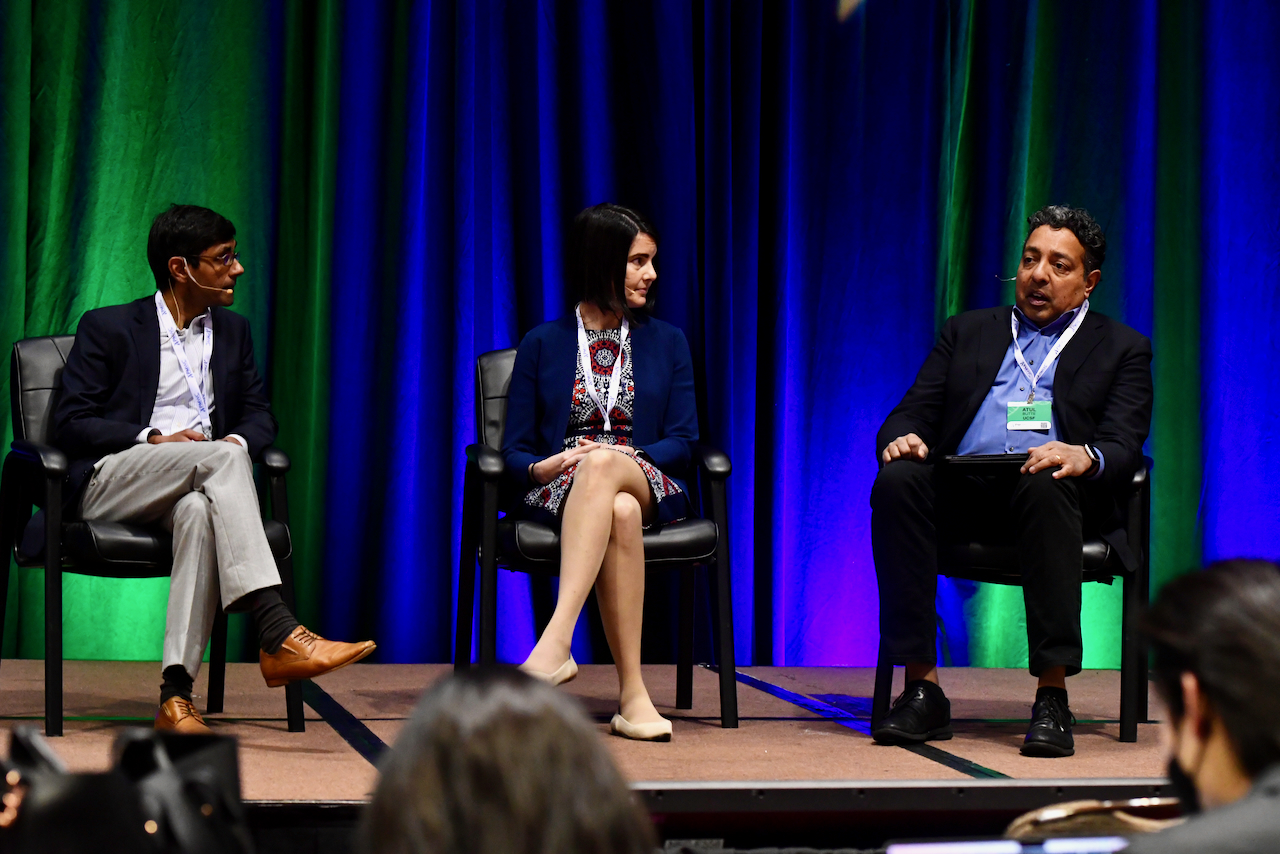
The track’s sessions included panels with robust representation from UCSF’s Bakar Computational Health Sciences Institute (BCSHI) and the UCSF Center for Real World Evidence (CRWE), which sparked dynamic conversations in this promising precision medicine space:
- “Clinical Studies Using RWD,” Sanket Dhruva, MD, assistant professor of Medicine
- “Beyond the EHR: Acquisition of RWD Types to Enable Precision Medicine,” chaired by Riley Bove, MD, associate professor, Neurology
- “Data Linkage, Harmonization, and Quality,” Rohit Vashisht, PhD, Clinical Research Data Scientist, BCSHI; Mindy Hebert-DeRouen, PhD, MPH, Research Scientist
- “Using RWE to Uncover and Address Health Disparities, Robert Hiatt, MD, PhD, professor, Epidemiology and Biostatistics
- “Fireside Chat” with UCSF CRWE Co-Directors Atul Butte, MD, PhD, and Vivek Rudrapatna, MD, PhD, and FDA’s Chief Medical Officer Hilary Marston, MD, MPH.
The day two Women’s Health track included panel sessions also led by UCSF faculty:
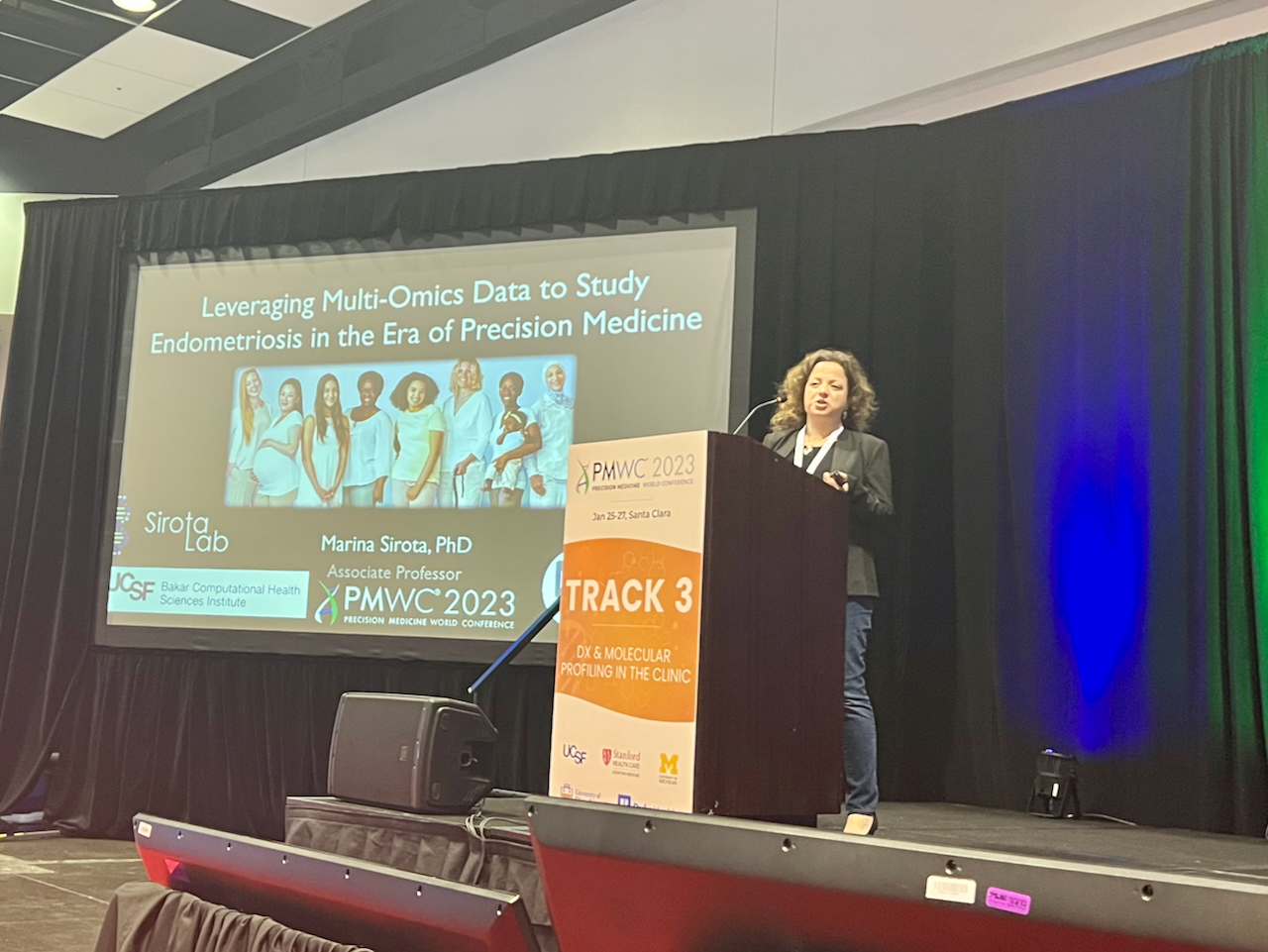
- “Novel Insights into Endometriosis through Precision Medicine,” Marina Sirota, PhD, associate professor in pediatrics and associate director of advocacy and outreach, BCHSI
- “Genomics of Pregnancy Loss” / Precision Health for Mothers and Babies, Aleksandar Rajkovic, MD, chief genomics officer at UCSF who also chaired a session on “Reproductive Ageing” with panelist Diana Laird, PhD, who directs the Laboratory of Germline Development, Fitness, and Aging at UCSF
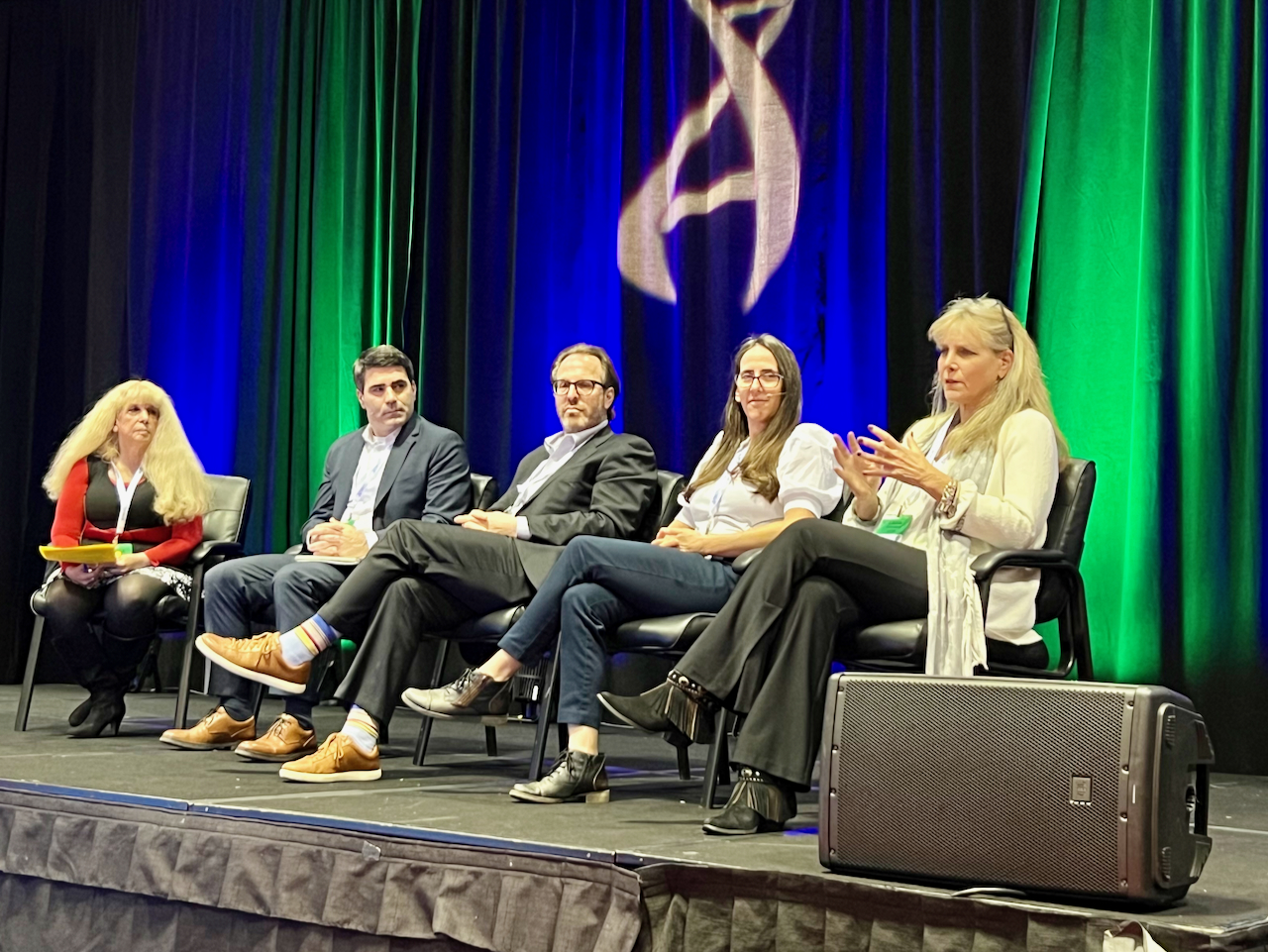
In the Early Oncology Application track, Laura Esserman, MD, MBA, professor of Surgery, discussed the importance of integrating clinical and basic science research to better inform clinical trial design. Esserman directs the UCSF Breast Care Center. She emphasized the need for collaboration between academia, industry, and government to accelerate drug development and improve patient outcomes. She also stressed the importance of incorporating patient feedback and involving patients in the clinical trial design process - by integrating patient perspectives, researchers can better identify the most relevant endpoints and outcomes for patients and improve the overall effectiveness of clinical trials.
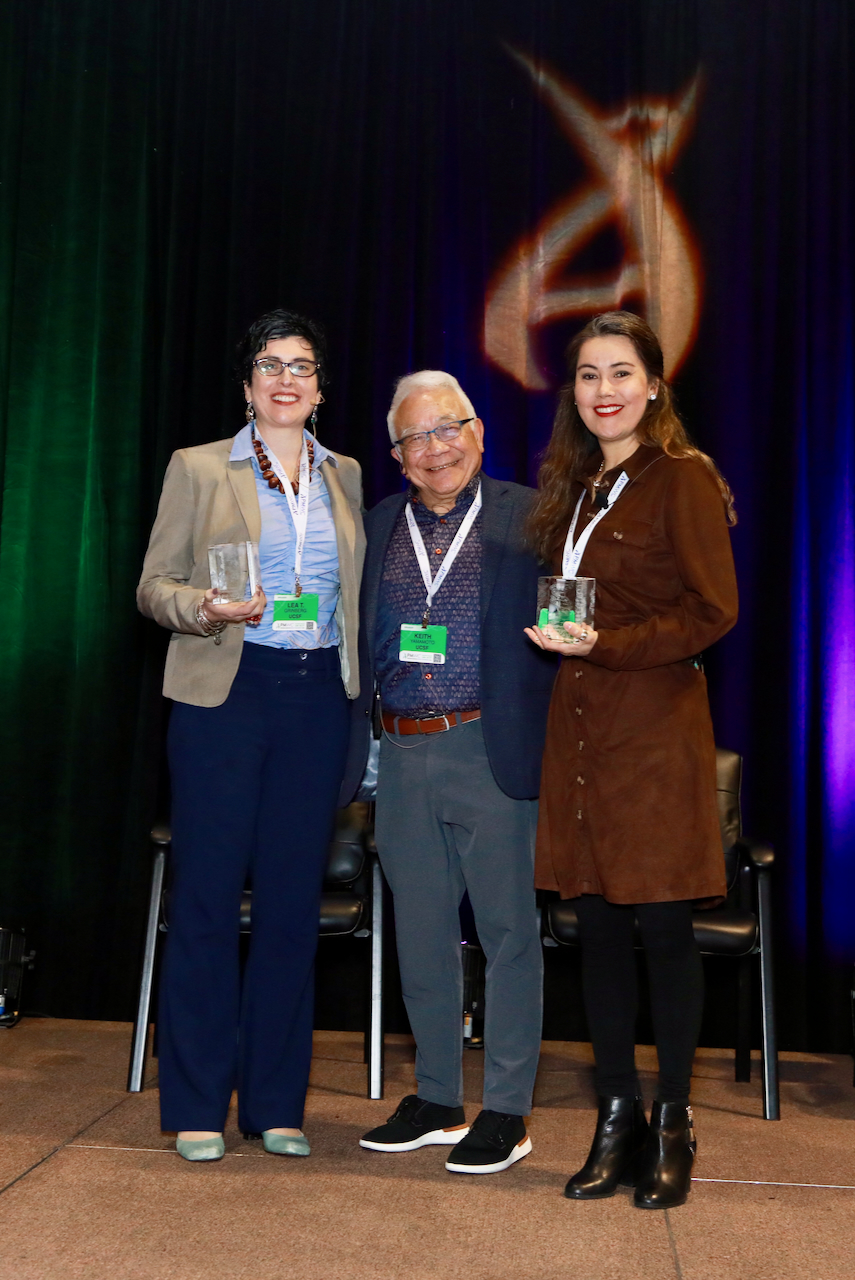
The third day honored two UCSF researchers who received PMWC’s Pioneer Awards – Lea Grinberg, MD, PhD, and Daniela Ushizima, PhD, for their work to develop a new and reliable technique for diagnosing Alzheimer’s disease and measuring the efficacy of experimental treatments. Both awardees participated in a panel afterwards in the Imaging Applications track on “Pattern Recognition and Content Quantification in Early-stage Disease Diagnosis.”
Toward the end of the final day, School of Pharmacy Dean Kathy Giacomini discussed functional genomics and the importance of diversity, equity and inclusion in pharmacogenomics implementation using OCT1 as an example. Bani Tamraz, PhD, associate professor at the School of Pharmacy, made it public at the conference that UCSF Health would launch a Clinical Pharmacogenetics program. Tamraz chaired the “Establishing Genomics in the Clinic as a Routine Requires AI and Automation” session in the AI and Data Science in Clinical Practice track.
Campus Partners
UCSF Innovation Ventures Office of Strategic Alliances members partnered with UCSF’s Precision Medicine team to deliver a 2023 PMWC brochure highlighting UCSF faculty serving as speakers and chairs during the meeting and to support the UCSF exhibit booth. This presence was vital for conveying to exhibit booth visitors the Innovation Ventures team’s role in identifying and building strategic partnerships between UCSF and industry to support scientific research and to secure partners for commercializing and developing new healthcare products. Conversations were held with various organizations that visited the booth, including multiple UC campuses, start-ups, contract research organizations, government entities, non-profits, and industry. These interactions helped showcase Innovation Ventures’ support for transitioning UCSF innovation out of the lab and into the marketplace, where precision medicine innovations can ultimately improve health, medicine, and healthcare delivery.
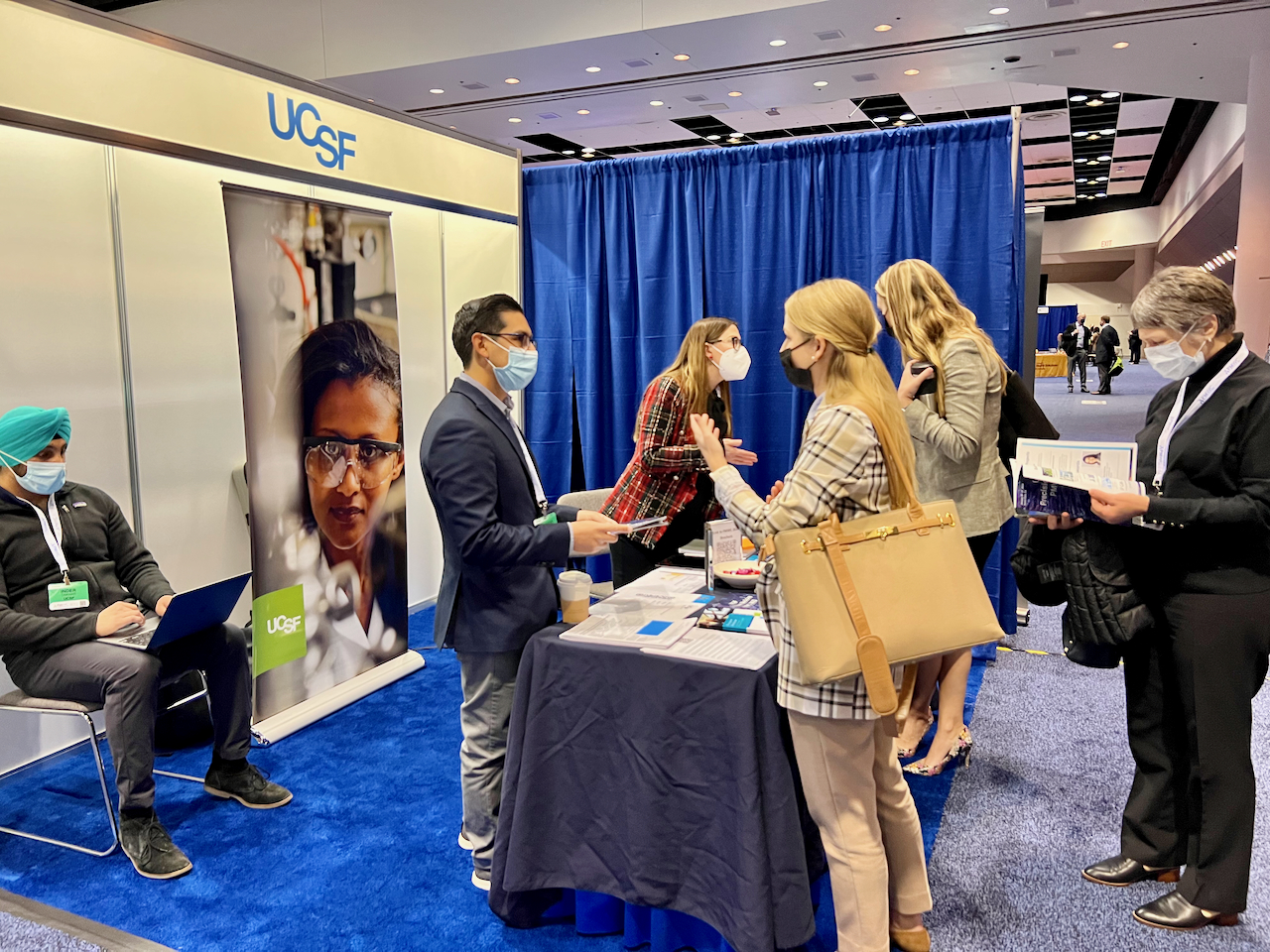 See links:
See links:
2023 UCSF PMWC Brochure - Description of all UCSF presentations
UCSF PMWC 2023 Panel Videos (UCSF-Access Only)
